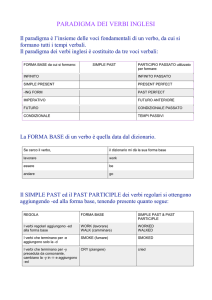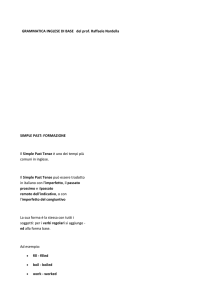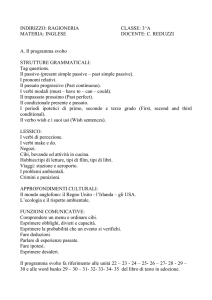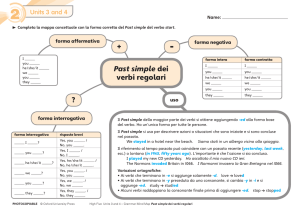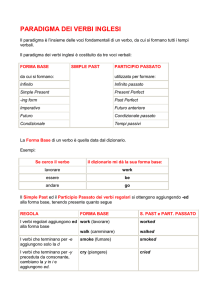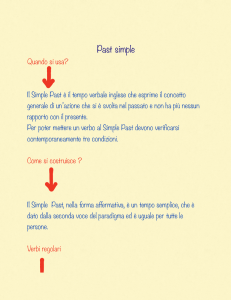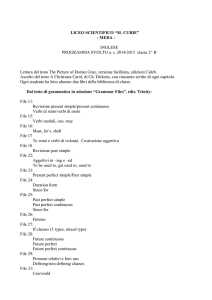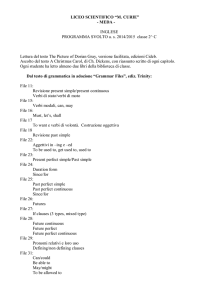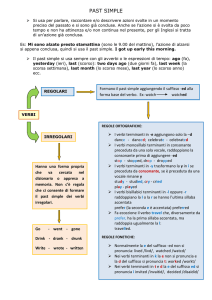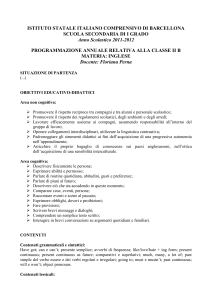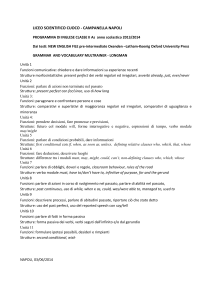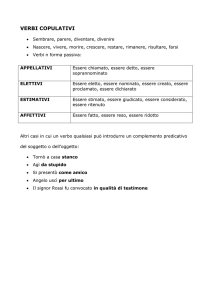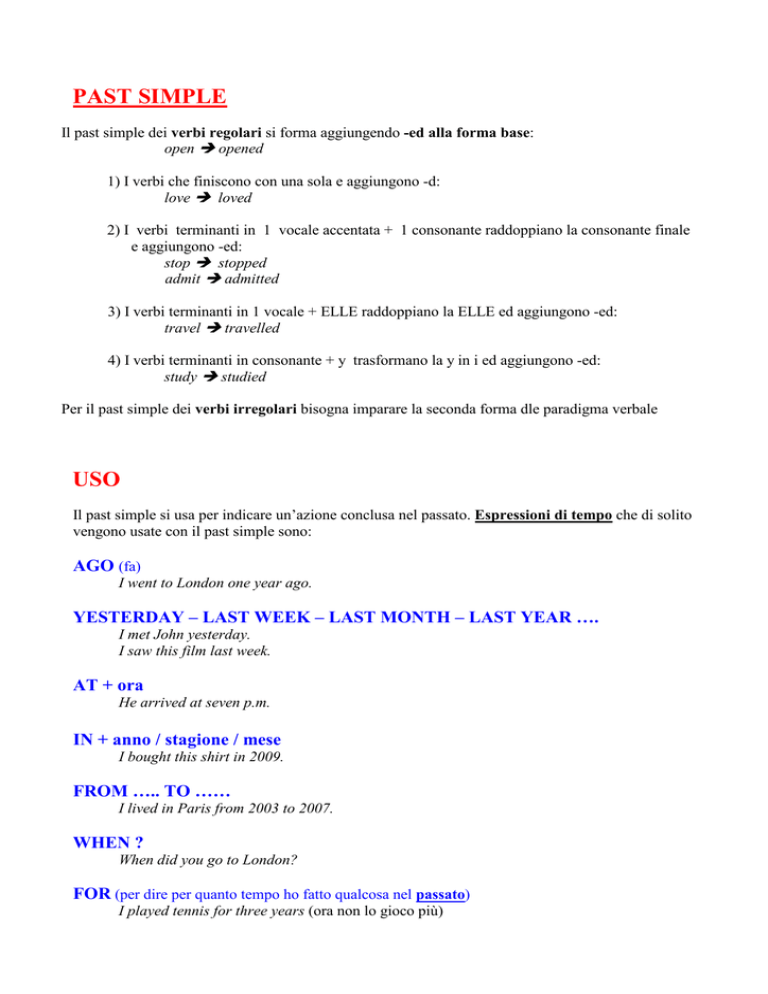
PAST SIMPLE
Il past simple dei verbi regolari si forma aggiungendo -ed alla forma base:
open opened
1) I verbi che finiscono con una sola e aggiungono -d:
love loved
2) I verbi terminanti in 1 vocale accentata + 1 consonante raddoppiano la consonante finale
e aggiungono -ed:
stop stopped
admit admitted
3) I verbi terminanti in 1 vocale + ELLE raddoppiano la ELLE ed aggiungono -ed:
travel travelled
4) I verbi terminanti in consonante + y trasformano la y in i ed aggiungono -ed:
study studied
Per il past simple dei verbi irregolari bisogna imparare la seconda forma dle paradigma verbale
USO
Il past simple si usa per indicare un’azione conclusa nel passato. Espressioni di tempo che di solito
vengono usate con il past simple sono:
AGO (fa)
I went to London one year ago.
YESTERDAY – LAST WEEK – LAST MONTH – LAST YEAR ….
I met John yesterday.
I saw this film last week.
AT + ora
He arrived at seven p.m.
IN + anno / stagione / mese
I bought this shirt in 2009.
FROM ….. TO ……
I lived in Paris from 2003 to 2007.
WHEN ?
When did you go to London?
FOR (per dire per quanto tempo ho fatto qualcosa nel passato)
I played tennis for three years (ora non lo gioco più)
PRESENT PERFECT
Il present perfect si costruisce con:
PRESENTE DI HAVE + PAST PARTICIPLE
I have written
She has visited
USO
Il present perfect si usa per indicare azioni accadute in un passato indefinito, o che hanno ancora
conseguenze nel presente, o che continuano anche nel presente.
Molto spesso il present perfect si usa con espressioni di TEMPO INDEFINITO.
Ricorda la formula RED:
R = RECENT ACTIONS - Si usa con :
recently (recentemente)
lately (ultimamente)
just (appena)
already (già)
yet? (già?)
not…yet (non ancora)
today (oggi)
this week/month/year
I’ve read a nice book recently.
I haven’t seen him lately.
I’ve just met Mark.
I’ve already studied Geography.
Have you finished your homework yet?
I haven’t listened to this CD yet.
I’ve met Tom today.
We’ve studied The USA this week.
E = EXPERIENCES
Si usa per parlare di esperienze fatte o non fatte senza specificare quando; si usa con:
ever (mai?)
Have you ever been to the USA?
never (mai)
I’ve never eaten octopus.
always
I’ve always wanted to go to London.
once (una volta), twice (due volte), three times
I’ve seen this film three times
so far (finora)
I’ve read 10 books so far.
It’s the first/second/third time…
It’s the first time I’ve eaten this food.
D = DURATION
Indica un’azione che è iniziata nel passato ma che continua ancora nel presente (in italiano
corrisponde ad un verbo al presente). In questo caso è seguito da:
FOR + periodo di tempo
SINCE + il momento in cui è iniziata l’azione
He has studied English for 5 years
He has studied English since 2006
Per chiedere da quando o da quanto tempo si usa HOW LONG ?
How long have you studied English?

